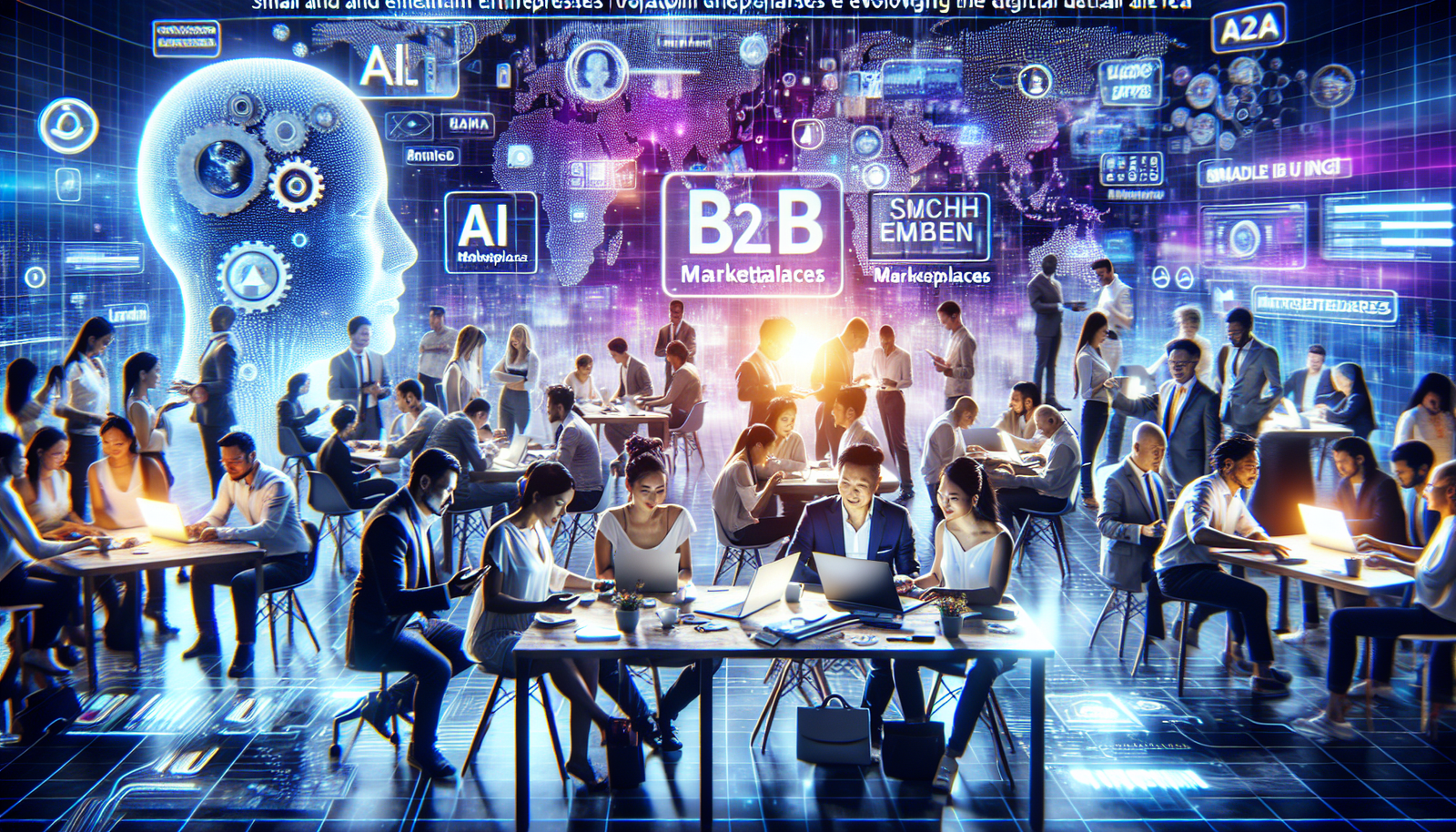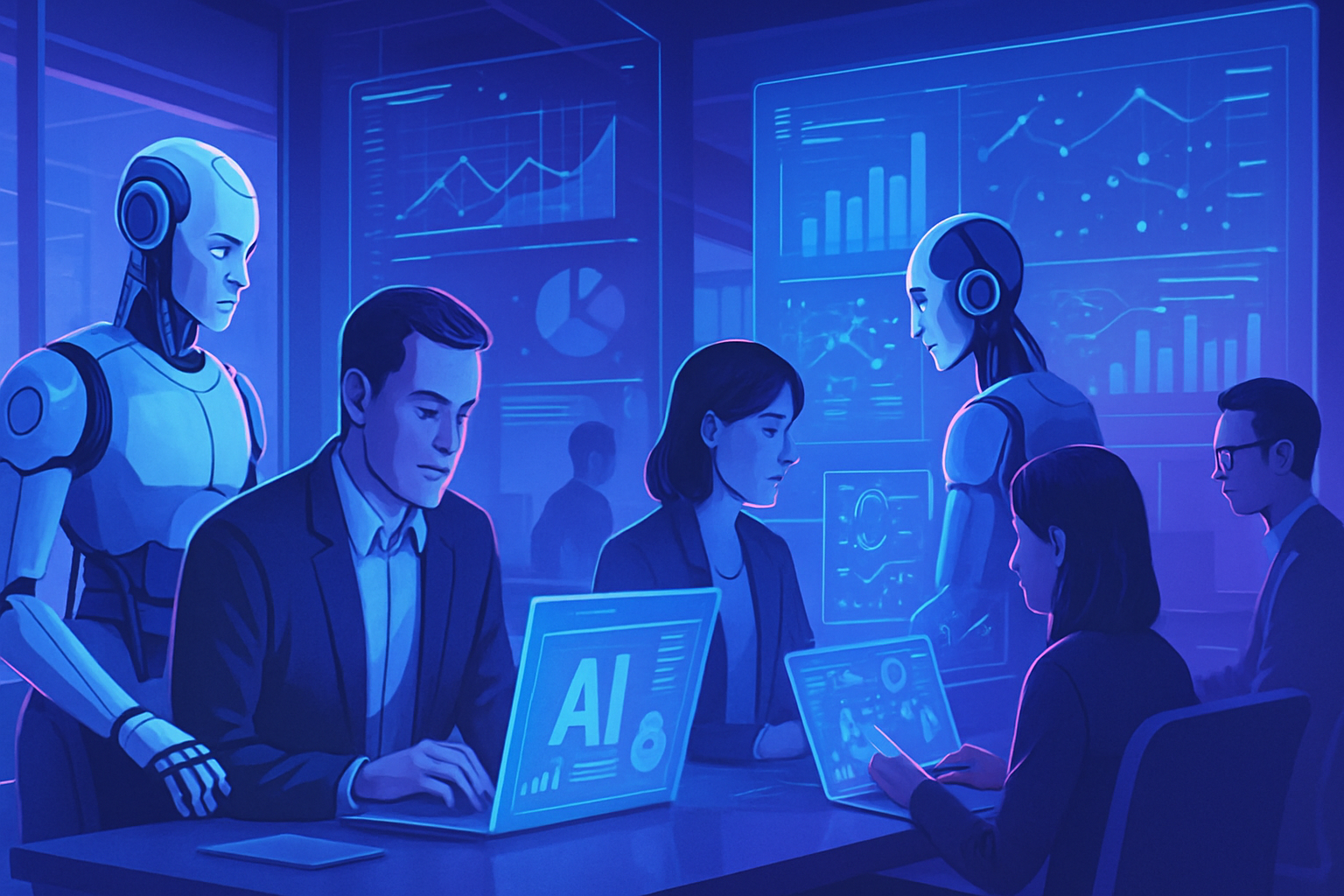The economic landscape requires SMEs to engage in a daring reinvention to reconcile growth and adaptation. Confronted with fierce competition and growing challenges, these companies must embrace innovation. The rise of B2B marketplaces and the integration of AI offer relevant solutions to contemporary issues. These technologies represent a remarkable strategic lever, transforming sourcing and optimizing supply chains. This phenomenon not only stimulates competitiveness but also paves the way for new growth opportunities.
Reinvention of SMEs in the Age of Artificial Intelligence
Small and medium-sized enterprises (SMEs) face unprecedented challenges. The rising costs of raw materials and labor shortages create constant pressure on their profit margins. The necessity to adapt to this precarious situation has become a strategic imperative. The integration of artificial intelligence (AI) emerges as an innovative response to these competitiveness issues.
Turning to B2B Marketplaces
Diversifying supply sources is essential. Online B2B marketplaces are becoming increasingly important among the solutions considered by SMEs. More than 50% of companies are turning to these platforms in search of new products. These digital spaces facilitate exchanges between buyers and sellers, making sourcing more accessible and fluid.
The Impact of AI on Sourcing
The integration of AI into sourcing processes radically transforms the economic landscape. An increasing number of French SMEs, estimated at 27%, view AI as a major growth opportunity. This technology allows for the reinvention of traditional sourcing methods, increasing the efficiency and responsiveness of companies.
Automation of Processes
AI tools automate time-consuming tasks such as order management and invoicing. This efficiency allows teams to focus on high-value transactions. Less time spent on administrative formalities fosters greater operational agility.
Anticipation and Proactive Risk Management
AI algorithms anticipate stock shortages and price fluctuations by analyzing real-time data. This predictive capability allows SMEs to adjust their stock and negotiate strategically with their suppliers. By analyzing market trends, companies are better prepared to face the uncertainties of commerce.
Optimization of Supplier Selection
SMEs can enhance their performance by rigorously evaluating their suppliers. With objective evaluation criteria integrated into AI, data such as product quality and delivery times are taken into account. This approach can reduce risks associated with business partners and improve the quality of supplies.
Identification of New Partners
The search for new suppliers is now conducted strategically. AI tools help identify partners that precisely meet sustainability and cost criteria. By cross-referencing diverse data, SMEs discover unprecedented opportunities within their supply chains.
Building Collaborative Ecosystems
Technological advances promote a smarter sourcing ecosystem. Through real-time data sharing, SMEs and suppliers enhance their collaboration. This new dynamic optimizes production forecasts and purchasing strategies, thereby strengthening the competitiveness of market players.
Accelerating Digital Transformation
Artificial intelligence, combined with B2B marketplaces, serves as a vector for radical transformation for SMEs. Adopting these digital tools not only creates productivity gains but also strengthens companies’ market positions. The rise of AI changes the relationship with work, fostering innovation in logistics and sourcing fields.
Companies must embrace these technological changes to enrich their business models. Every progress made in integrating AI and B2B marketplaces brings SMEs closer to optimizing their operations while meeting the growing demands of the market. The competitiveness potential that these innovations offer requires constant attention and sustained commitment.
Frequently Asked Questions
How can artificial intelligence help SMEs improve their supply chain?
Artificial intelligence enables SMEs to automate routine tasks, anticipate stock shortages, and manage delivery risks, thereby facilitating the optimization of their supply chain.
What advantages do B2B marketplaces offer to SMEs in terms of sourcing?
B2B marketplaces provide SMEs with a variety of suppliers, the opportunity to source innovative products, and more efficient purchasing processes through the integration of advanced technologies like AI.
Do SMEs need to invest in AI to remain competitive in the current market?
Yes, AI has become a key lever for the competitiveness of SMEs, allowing for operation optimization, productivity increase, and better response to market demands.
How can SMEs choose the right B2B marketplace platform?
SMEs should evaluate the features of each platform, such as product variety, user reviews, integrated analytics tools, and ease of use, to choose the one that best meets their needs.
What types of AI tools are available for SMEs looking to optimize their sourcing?
There are various AI tools, including those for order automation, supplier management, predictive analytics for sales, and stock optimization, that assist SMEs in their sourcing.
Does implementing AI require significant financial investment for SMEs?
Although the initial investment in technology and training can be substantial, long-term productivity gains and reduced sourcing costs can more than offset these expenditures.
How can SMEs evaluate the impact of AI on their performance?
SMEs can use key performance indicators (KPIs) such as reduced delivery times, improved customer satisfaction, and increased profit margins to assess the impact of AI.
What challenges do SMEs face when integrating AI into their processes?
Challenges include resistance to change, the need for staff training, integration with existing systems, and the management of data necessary for AI operation.
What are the current trends in AI and B2B marketplaces that could affect SMEs?
Trends include increased automation, improvements in search tools and machine learning algorithms, as well as the rise of sustainable and responsible sourcing solutions.






